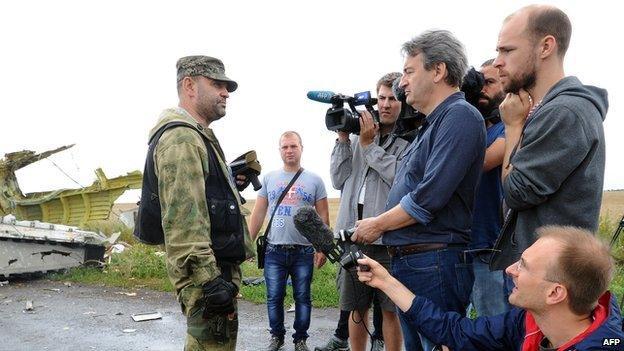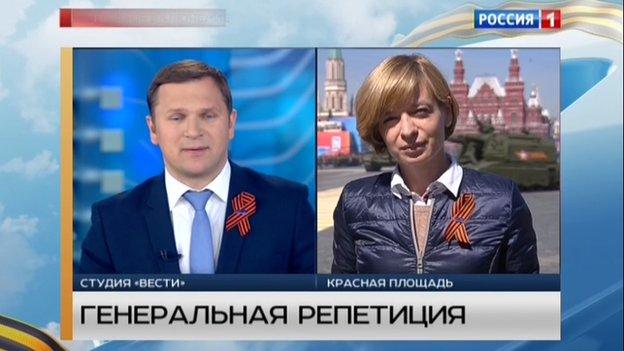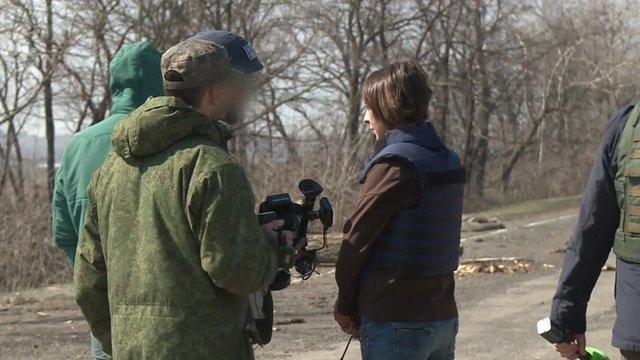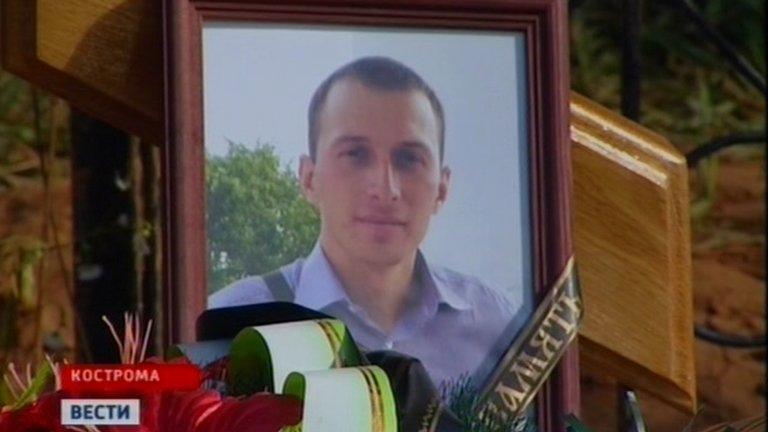Ukraine crisis heightens threats to media - OSCE
- Published

Media manipulation was a feature of the MH17 jet disaster in eastern Ukraine last year
The OSCE international security body has urged governments to "stop manipulating the media", saying propaganda and censorship are bedevilling coverage of the Ukraine crisis.
The Organization for Security and Co-operation in Europe has monitors on the ground in eastern Ukraine, where frequent skirmishes have shattered a ceasefire agreed by the Kiev government and pro-Russian rebels in February.
"Hands off the media," the OSCE's Dunja Mijatovic said in a BBC interview. She is the organisation's representative on media freedom.
She was speaking ahead of an OSCE conference in Vienna on the safety of journalists and threats to the media.
The 2014 anti-government protests in Kiev, the crisis in Crimea and ongoing armed conflict in eastern Ukraine "paved the way for a major media freedom and journalists' safety crisis," she said, and not just in Ukraine and neighbouring countries.
"We have reports of more than 300 journalists being attacked in the past year, 10 journalists killed, seven in eastern Ukraine, and there are cases of journalists being kidnapped and detained."

The St George's ribbon is a mark of Russian state TV reporters' patriotism
'Ugly scar'
Ms Mijatovic said dozens of journalists are being denied free access to cover events and many media outlets are engaged in propaganda espousing war and hatred.
"Propaganda is an ugly scar on journalism," she said. "It is very present."
The OSCE , externalhas 57 participating states, stretching from Vancouver in Canada to Vladivostok in Russia's far east.
Ms Mijatovic tends to be much more outspoken than many of her OSCE colleagues.
"We are very vocal in telling the governments not to use journalists as a tool for manipulations for their political agendas," she said.
She told the BBC that it was sometimes important to "name and shame" governments who put journalists' safety and media freedom at risk.
She said the list of offenders was long, but she singled out Russia, Azerbaijan and Ukraine as areas of particular concern.
The conference brings together 300 journalists, diplomats and policymakers from across the OSCE region.
- Published8 April 2015

- Published1 April 2015

- Published5 September 2014
